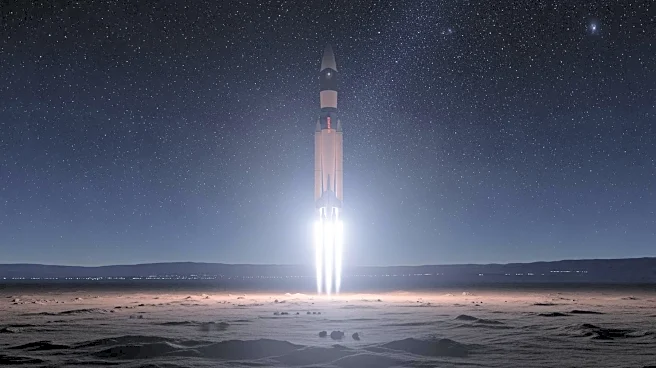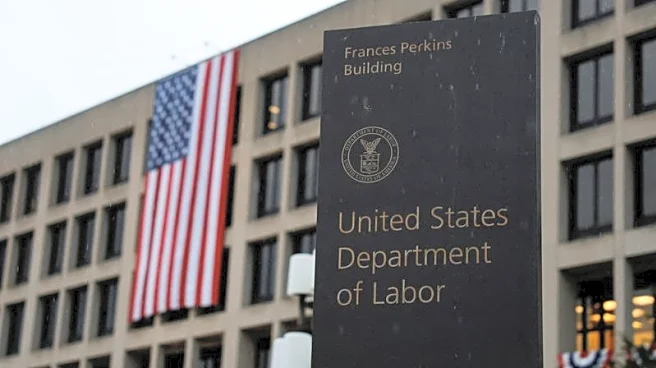What's Happening?
SpaceX has reached a settlement with Cards Against Humanity over allegations of trespassing and property damage in Texas. The lawsuit, filed by the card game company, accused SpaceX of using its land in Cameron
County without permission, placing construction materials and debris on the property. Cards Against Humanity had purchased the land in 2017 as a protest against President Trump's border wall plans. The settlement was reached just weeks before a jury trial was scheduled to begin. While the terms of the settlement remain undisclosed, SpaceX admitted to trespassing during the discovery phase. Cards Against Humanity expressed relief that SpaceX removed its equipment, allowing the land to be restored to its natural state.
Why It's Important?
The settlement highlights the ongoing tensions between private companies and landowners, especially in areas targeted for large-scale industrial projects. For SpaceX, resolving the lawsuit avoids a potentially costly trial and negative publicity. Cards Against Humanity's stance reflects broader societal debates on land use and corporate responsibility. The case underscores the importance of respecting property rights and the impact of industrial activities on local communities. The resolution allows Cards Against Humanity to focus on restoring the land, aligning with its original intent to oppose border wall construction.
What's Next?
With the settlement concluded, Cards Against Humanity plans to work with local landscapers to restore the land. The company had hoped to compensate donors who contributed to the land purchase, though the settlement may not cover the full amount sought. SpaceX's future interactions with landowners in the area may be influenced by this case, potentially leading to more cautious approaches in land acquisition and use. The resolution may also prompt discussions on corporate accountability and environmental stewardship in industrial projects.
Beyond the Headlines
The case raises questions about the ethical responsibilities of corporations in managing land and respecting local communities. It highlights the potential conflicts between industrial expansion and environmental preservation. The settlement may influence future legal frameworks governing land use and corporate trespassing, setting precedents for similar disputes. The broader implications touch on the balance between economic development and maintaining natural landscapes.










